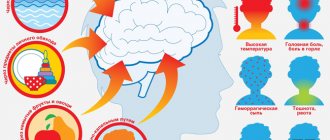For the normal functioning of the nervous system and overcoming stress, a person needs to receive from food all the nutrients important for health and well-being. With a deficiency of vitamins, minerals and amino acids, the risk of developing depression and other diseases of the nervous system increases. Foods against stress and depression are those that are rich in:
- vitamin C - citrus fruits, black currants, rose hips;
- B vitamins (B6 - pistachios, whole grains and whole grain cereals, B9 - lentils, parsley);
- vitamin E - egg yolk, cold-pressed olive oil, wheat germ oil, hazelnut;
- magnesium and zinc - these microelements improve the absorption of the amino acid tryptophan, which is mainly responsible for a good mood.
The central nervous system spends up to half of the nutrients supplied with the diet to ensure its functions. With increasing mental stress, the needs of the central nervous system also increase, and a deficiency of necessary substances can lead to serious disorders.
To maintain a good mood, good spirits and calmness even in the face of significant irritants, you need to eat well, follow a daily routine, not suppress emotions - love yourself and lead an active lifestyle.
Link between diet and depression
A proper diet can improve symptoms of depression.
One of the factors that can help reduce depression is a person's healthy eating habits.
The study found that the symptoms of people with moderate to severe depression improved when they received nutrition counseling and adopted a healthier diet for 12 weeks.
The improved diet focuses on fresh, whole foods that are high in nutrients. She also limited processed, refined foods, sweets and fried foods.
Depressive symptoms, including mood and anxiety, improved significantly, reaching remission criteria in more than 32% of participants .
The researchers concluded that people can manage or improve symptoms of depression by making dietary decisions.
Read about the consequences of high sugar consumption here.
Fast food
When you're feeling down, preparing fresh, healthy food is the last thing you worry about. And in this situation, fast food is the best solution to quickly, without straining, saturate the body. But it is very insidious, because regular use can lead to depression and overeating. It has been scientifically proven that people who prefer fast food are 51% more likely to develop depression.
Try to change your habits and snack on healthy and light foods, such as dried fruits, nuts, avocados, oatmeal.
Vitamin D
According to a 2020 meta-analysis, vitamin D may help improve symptoms of depression.
People get most of their vitamin D from sun exposure, but supplemental sources are also important.
Anti-depression foods that can provide you with vitamin D include:
- fatty fish
- fortified dairy products
- beef liver
- egg
Supplements are also available for purchase online.
Dairy
Some studies indicate that casein protein, found in dairy products, is a trigger for inflammation and depression.
Not everyone experiences this effect, but try giving up dairy products for a month and observe how you feel. Replenish calcium with spinach, oranges, apricots, and broccoli.
Omega-3 fatty acids
Some studies have shown that omega-3 fatty acids may help treat depressive disorders.
However, the authors of the 2020 review concluded that more research is needed to confirm past findings.
Consuming omega-3 fatty acids may reduce the risk of mood disorders and brain diseases by improving brain function and preserving the myelin sheath, which protects nerve cells.
Good sources of omega-3 fatty acids:
- cold-water fish such as salmon, sardines, tuna and mackerel
- flaxseed, flaxseed oil and chia seeds
- walnuts
Omega-3 supplements are also available for purchase online.
Artificial sweeteners
Unfortunately, artificial sweeteners cannot replace harmful sugar, because they also negatively affect our mood. In particular, aspartame reduces sensitivity. When serotonin is blocked in the brain, headaches, insomnia and mental instability occur.
If you can't imagine your life without sweets, try consuming honey and stevia. These sweeteners do not pose any negative consequences in the future.
Antioxidants
Vitamins A (beta-carotene), C and E contain substances called antioxidants.
Antioxidants help remove free radicals, which are waste products from natural processes in the body that accumulate in the body.
If the body cannot eliminate enough free radicals, oxidative stress can develop. It can lead to a number of health problems, including anxiety and depression.
Findings from a 2012 study suggested that consuming vitamins that provide antioxidants may reduce anxiety symptoms in people with generalized anxiety disorder.
Fresh plant foods such as berries are good sources of antioxidants. A diet that is rich in fresh fruits and vegetables, soy and other plant foods may help reduce stress-related symptoms of depression.
B vitamins
Whole grain foods are a good source of vitamin B-12.
Vitamins B-12 and B-9 help protect and support the nervous system, including the brain . They may help reduce the risk and symptoms of mood disorders such as depression.
Sources of Vitamin B-12:
- eggs
- meat
- Domestic bird
- fish
- oysters
- milk
- some fortified cereals
Foods that contain folate:
- dark leafy vegetables
- fruits and fruit juices
- nuts
- beans
- whole grains
- dairy
- meat and poultry
- seafood
- eggs
People can buy vitamin B-12 and folic acid supplements from online stores.
Fully or partially limited products
The diet for depression excludes:
- Fatty meats, cooking fats, duck, goose, smoked meats.
- Products containing simple carbohydrates (sugar, packaged juices, jam, jam, ice cream, sweets, sweet drinks).
- Refined grain carbohydrates (cakes, pastries, pastries, premium flour products).
- Smoked products, canned food, fast food products, semi-finished products.
- High fat dairy/fermented milk products.
- Caffeine containing drinks, alcohol.
| Proteins, g | Fats, g | Carbohydrates, g | Calories, kcal | |
Vegetables and greens | ||||
| radish | 1,2 | 0,1 | 3,4 | 19 |
| white radish | 1,4 | 0,0 | 4,1 | 21 |
| red radish | 1,2 | 0,1 | 3,4 | 20 |
| black radish | 1,9 | 0,2 | 6,7 | 35 |
| spinach | 2,9 | 0,3 | 2,0 | 22 |
| sorrel | 1,5 | 0,3 | 2,9 | 19 |
Berries | ||||
| grape | 0,6 | 0,2 | 16,8 | 65 |
Mushrooms | ||||
| mushrooms | 3,5 | 2,0 | 2,5 | 30 |
Nuts and dried fruits | ||||
| raisin | 2,9 | 0,6 | 66,0 | 264 |
Cereals and porridges | ||||
| semolina | 10,3 | 1,0 | 73,3 | 328 |
| white rice | 6,7 | 0,7 | 78,9 | 344 |
Flour and pasta | ||||
| pasta | 10,4 | 1,1 | 69,7 | 337 |
Confectionery | ||||
| jam | 0,3 | 0,2 | 63,0 | 263 |
| jam | 0,3 | 0,1 | 56,0 | 238 |
| candies | 4,3 | 19,8 | 67,5 | 453 |
| pastry cream | 0,2 | 26,0 | 16,5 | 300 |
| cookie | 7,5 | 11,8 | 74,9 | 417 |
Ice cream | ||||
| ice cream | 3,7 | 6,9 | 22,1 | 189 |
Cakes | ||||
| cake | 4,4 | 23,4 | 45,2 | 407 |
Raw materials and seasonings | ||||
| mustard | 5,7 | 6,4 | 22,0 | 162 |
| mayonnaise | 2,4 | 67,0 | 3,9 | 627 |
Dairy | ||||
| milk 3.6% | 2,8 | 3,6 | 4,7 | 62 |
| milk 4.5% | 3,1 | 4,5 | 4,7 | 72 |
| cream | 2,8 | 20,0 | 3,7 | 205 |
| sour cream 25% (classic) | 2,6 | 25,0 | 2,5 | 248 |
Cheeses and cottage cheese | ||||
| cottage cheese 11% | 16,0 | 11,0 | 1,0 | 170 |
| cottage cheese 18% (fat) | 14,0 | 18,0 | 2,8 | 232 |
Meat products | ||||
| pork | 16,0 | 21,6 | 0,0 | 259 |
| pork liver | 18,8 | 3,6 | 0,0 | 108 |
| pork kidneys | 13,0 | 3,1 | 0,0 | 80 |
| pork fat | 1,4 | 92,8 | 0,0 | 841 |
| salo | 2,4 | 89,0 | 0,0 | 797 |
| beef liver | 17,4 | 3,1 | 0,0 | 98 |
| beef kidneys | 12,5 | 1,8 | 0,0 | 66 |
| beef brains | 9,5 | 9,5 | 0,0 | 124 |
Sausages | ||||
| smoked sausage | 16,2 | 44,6 | 0,0 | 466 |
| smoked sausage | 9,9 | 63,2 | 0,3 | 608 |
| sausages | 10,1 | 31,6 | 1,9 | 332 |
| sausages | 12,3 | 25,3 | 0,0 | 277 |
Bird | ||||
| smoked chicken | 27,5 | 8,2 | 0,0 | 184 |
| duck | 16,5 | 61,2 | 0,0 | 346 |
| smoked duck | 19,0 | 28,4 | 0,0 | 337 |
| goose | 16,1 | 33,3 | 0,0 | 364 |
Fish and seafood | ||||
| smoked fish | 26,8 | 9,9 | 0,0 | 196 |
| salted fish | 19,2 | 2,0 | 0,0 | 190 |
| Red caviar | 32,0 | 15,0 | 0,0 | 263 |
| black caviar | 28,0 | 9,7 | 0,0 | 203 |
| canned fish | 17,5 | 2,0 | 0,0 | 88 |
| cod (liver in oil) | 4,2 | 65,7 | 1,2 | 613 |
Oils and fats | ||||
| animal fat | 0,0 | 99,7 | 0,0 | 897 |
| cooking fat | 0,0 | 99,7 | 0,0 | 897 |
Non-alcoholic drinks | ||||
| instant coffee dry | 15,0 | 3,5 | 0,0 | 94 |
| black tea | 20,0 | 5,1 | 6,9 | 152 |
| * data is per 100 g of product | ||||
Zinc
Zinc not only helps the body perceive taste, but also strengthens the immune system and may affect depression.
Some studies suggest that zinc levels may be lower in people with depression and that zinc supplements may help antidepressants work more effectively.
Zinc is present in:
- whole grains
- oysters
- beef, chicken and pork
- beans
- nuts and pumpkin seeds
Supplements are also available for purchase online.
What will help in the fight against depression
A positive emotional mood ensures normal metabolism of the neurotransmitter hormone serotonin. It is thanks to him that a person experiences joy, interest in life, a sense of well-being and happiness. In a depressed state, the level of serotonin in the body is reduced. The main task in treating depression is to raise it. This can also be done with food.
95% of the production of the “happiness hormone” occurs in the intestines during the chemical transformation of the amino acid tryptophan. It is not synthesized in the human body, which means that the diet for depression must include foods rich in this amino acid. But for the production of serotonin, a stable level of insulin in the blood and a sufficient amount of certain substances are necessary:
- Vitamin B3 – niacin. Just like serotonin, this vitamin, essential for life, is synthesized from tryptophan. If there is a lack of niacin, the amino acid is primarily directed by the body to its production, but there may not be enough tryptophan to produce serotonin.
- Vitamin B6 – pyrodoxine. Regulates protein metabolic processes in the body - increases tryptophan metabolism.
- Magnesium. This trace mineral is also necessary for the synthesis of serotonin. In addition, it has a calming effect on the nervous system, similar to antidepressants.
- Polyunsaturated fatty acids. Necessary for activating the synthesis of the “happiness hormone” and improving its absorption.
- Vitamin D. Regulates the gene responsible for the conversion of tryptophan into serotonin. It is also involved in the functioning of the endocrine system and affects the production of hormones that are lacking in depression
- Vitamin B2 – riboflavin. Plays an important role in the absorption of fatty acids and in the production of niacin, without which it is impossible to achieve sufficient serotonin levels.
It has been noticed that with a lack of vitamins B1, B9 and B12 in the body, anxiety, apathy, and irritability appear. These vitamins also promote a biochemical process that plays a key role in the production of neurotransmitters.
To cope with depression, you need to pay attention to a sufficient intake of these nutrients from food.
Protein
Anti-depression foods that include protein allow the body to grow and repair itself.
The body uses a protein called tryptophan to create serotonin, the “feel good” hormone.
Tryptophan is present in:
- tuna
- turkey
- chickpeas
Serotonin appears to play a role in depression, but the mechanism is complex and exactly how it works remains unclear. However, there are foods that can increase serotonin levels.
Foods high in sodium (salt)
Too much sodium in the body can disrupt the functioning of the nervous system, leading to fatigue and depression. In addition, the immune system, under the influence of large amounts of salt, creates an optimal environment for the development of depression.
But you should not completely give up salt, because low levels of salt in the body can also cause depression.
Weight management
Obesity increases the risk of depression.
This increased risk may be due to hormonal and immunological changes that occur in obese people.
A person who is overweight or obese may want to talk to their doctor or dietitian about ways to manage their weight.
Dietary Approaches to Stop Hypertension (DASH), which is recommended by health authorities, can help lower blood pressure and improve overall health.
There is also evidence that they can help with weight loss and may reduce the risk of depression.
The influence of the sun on emotions
On cloudy days it is more difficult to crawl out of bed and work, and you are less likely to want to smile and be active. Ultraviolet light triggers the production of vitamin D, which is one of the components of serotonin. An adult needs 600 IU of calciferol per day, otherwise health worsens and thought processes are inhibited.
What should be the diet for depression in the autumn-winter period? Sun deficiency should be replenished with healthy foods that supply calciferol to the digestive tract. The component is recommended for apathy and insomnia, lack of appetite and rapid weight loss.
It was not in vain that Soviet children were forced to drink fish oil, because it contains a high concentration of vitamin D. Silver in terms of component content went to the liver of cod, herring and mackerel. The beneficial vitamin enters the digestive tract from egg yolks and natural butter, milk and canned salmon. Recommended are caviar and tuna, chicken and pork liver. Canned fish should not be re-cooked or fried, otherwise most of the vitamins will evaporate. Use milk and yolks raw or prepare a steam omelet with seasonings and herbs from them.
In addition to following a diet, you should regularly go outside on sunny days and not hide from ultraviolet rays. In dosed quantities, they are not dangerous and contribute to the production of vitamins for depression.
Foods to avoid if you are depressed
Certain foods may worsen symptoms of depression.
Alcohol
There is a clear link between alcohol and mental health problems. A person may drink to cope with depression, but alcohol can worsen or cause new episodes of depression and anxiety.
Regular consumption of large amounts of alcohol can lead to further complications such as accidents, family problems, job loss and poor health.
alcohol to no more than one drink per day have a higher risk of developing certain types of cancer, according to the National Cancer Institute Poor health, in turn, can lead to further depression.
Fast food
Convenience foods , such as fast food and junk food, can be high in calories and low in nutrients.
Research has shown that people who consume a lot of fast food are more likely to suffer from depression than those who eat mostly fresh food.
Processed foods, especially those high in sugar and refined carbohydrates, may contribute to a higher risk of depression. When a person eats refined carbohydrates, the body's energy levels increase quickly but then drop. A chocolate bar may give you an immediate boost, but then a quick decline in strength may follow.
It's best to choose fresh, dense, nutritious, whole foods that provide a consistent source of energy over time.
Refined Oils
Refined and saturated fats can cause inflammation and can also impair brain function and worsen symptoms of depression.
Fats to avoid include:
- trans fats , which are present in many processed foods
- fats in red and processed meats
- safflower and corn oils are high in omega-6 fatty acids
Carbohydrate and Protein Support
Having trouble concentrating?
Do you want to lie in bed and do nothing? The brain needs the protein found in chicken, turkey breast and beef. In this case, chicken or duck eggs, soy dishes, tofu or cottage cheese will suit you. Why does the body need foods that contain protein? In addition to this component, they also contain the amino acid tyrosine. The substance triggers the production of dopamine and norepinephrine, which awaken the brain. Chicken and cottage cheese cause the gray matter to switch from an inhibited operating mode to a normal one.
Carbohydrates are no less beneficial for the gastrointestinal tract than proteins. They stimulate the production of serotonin. A low concentration of the hormone can cause depression, so porridge should be included in the daily menu. Buckwheat and wheat, oatmeal with bran and unpolished wild rice are suitable.
Complex carbohydrates are sources of energy. A person suffering from loss of strength and apathy should eat stewed and fresh vegetables, 30 g of any nuts or dried fruits daily, and bread made from wholemeal flour. It is recommended to separate protein foods from carbohydrate foods, otherwise the production of tryptophan will slow down. Porridges go well with vegetables and fruit salads, and chicken breast is best eaten with soy sauce or herbs.
Caffeine
People with depression may benefit from avoiding caffeinated drinks in the afternoon.
At least one study has found that moderate consumption of caffeine in the form of coffee may help people with depression. The benefits of caffeine may be due to its stimulant effects and antioxidant properties.
Caffeine is present in:
- coffee
- tea
- chocolate
- carbonated drinks
- energetic drinks
There is some evidence that small amounts of caffeine can reduce anxiety and improve your mood. However, some studies have shown that it may increase feelings of anxiety, stress and depression in older school-aged children.
Additionally, caffeine can affect a person's ability to sleep.
Although caffeine may benefit some people, it is best to:
- consume it only in moderation
- avoid foods high in caffeine, such as energy drinks
- avoid caffeine in the afternoon
About sweets
When you are in a bad mood, you want to eat a bar of chocolate or cake, because the sugar contained in desserts temporarily increases serotonin levels. The hormone is responsible for joy and happiness, helps the body resist stressful situations and stay alert. The effect of sweets ends after a few hours, and the euphoria is replaced by a feeling of depression and disappointment. Cakes and sweets are not the best option for getting out of depression. They disrupt metabolic processes and the functioning of the gastrointestinal tract. The body absorbs fewer vitamins from food, so the brain does not receive enough useful components. The thought process slows down, a feeling of fatigue and weakness occurs, and a sharp deterioration in mood occurs.
Dark chocolate will only be beneficial in small quantities. The product contains caffeine, which slightly invigorates, but in large doses it has the opposite effect and makes a person irritable. It is recommended to eat no more than three to four pieces per day, without washing down dessert with sweet tea. Pastries and pies are dangerous for your figure. You can't eat depression caused by excess weight, cookies and candy. The fat layer increases with each piece of sweets, and the well-being of a person with a mental disorder worsens. It is recommended to replace sweets with bananas or apples, and eat more grains, lentils and beans. These foods are beneficial to the gastrointestinal tract and naturally increase the concentration of serotonin in the blood.












